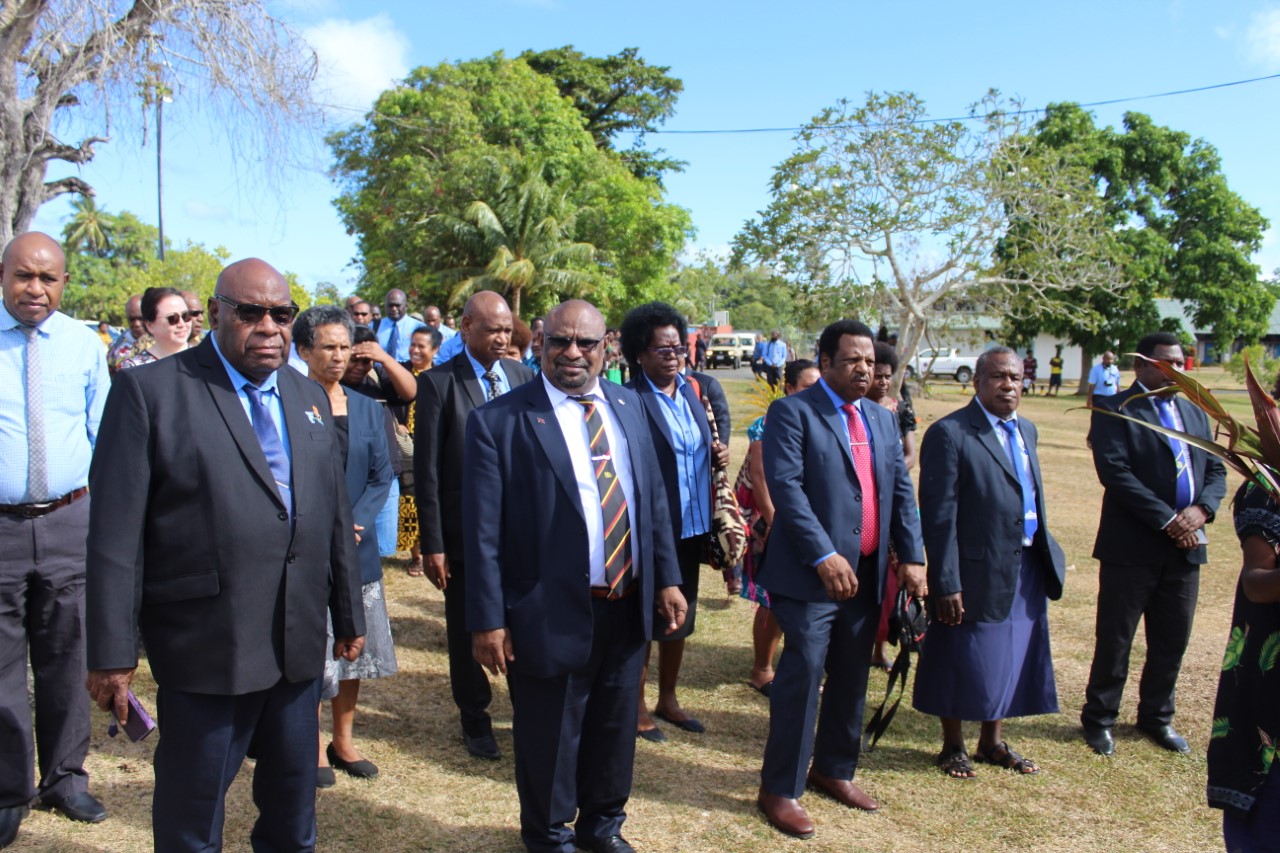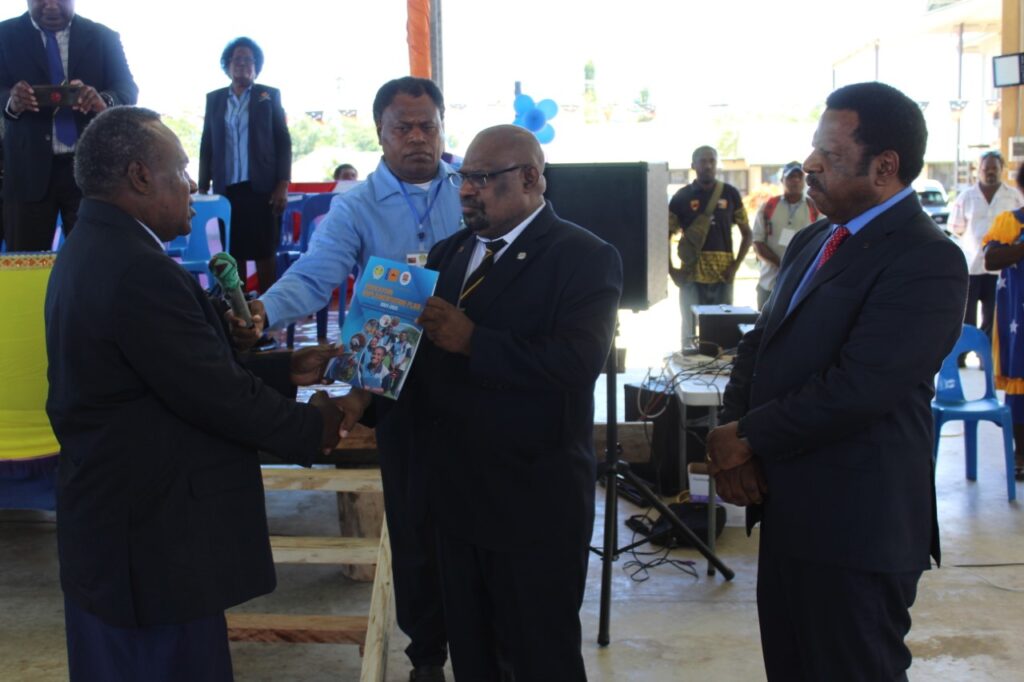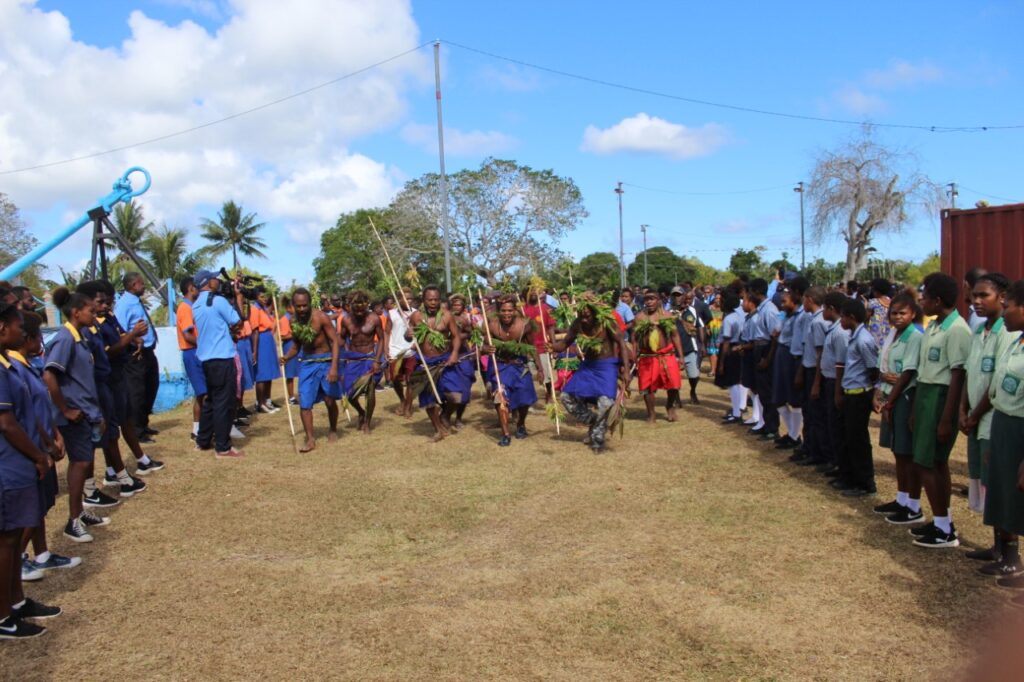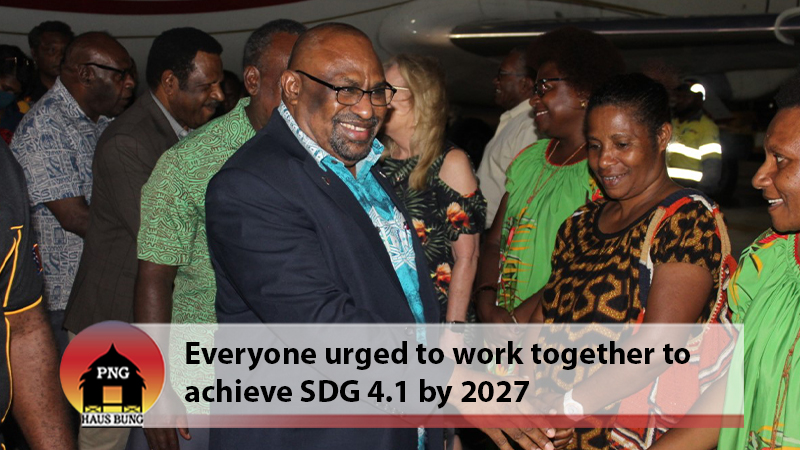The Minister for Education, Hon Jimmy Uguro, MP issued a challenge to all senior education officials present at the official opening of the week-long Senior Education Officers’ Conference being held at Kavieng Fisheries College to play their part and work together to achieve the Sustainable Development Goal 4 by 2027.
Mr. Uguro said that according to the Sustainable Development Goals, countries have been called on to ensure that all girls and boys complete free, equitable and quality primary and secondary education leading to relevant and effective learning outcomes by 2030”.

For Papua New Guinea, he called on everyone starting from the Ministry of Education staff, the community, the different levels of government and partners and stakeholders in education to play their part in achieving the SDG 4.1 by 2027.
The Ministry has been tasked with the implementation of two Priority Goals for the next five years. The implementation of these two priority goals will result in the achievement of the SDG 4.1 by 2027.
Priority Goal No 1 will ensure that all children complete a grade 12 education – leaving no child behind.
The following are strategies under Priority Goal 1 that the different levels of government and organisations are responsible for:
1. The National Government (Policy/Standards),
2. Provincial Government (High Schools & Vocational Training Centres) and Districts (LLGs) (Primary – Pre Schools) build 2,243 classrooms each year in schools and/or build 85 new high schools each year. i.e. each province build 4 schools per province or each district build 1 new high school each year.
3. All secondary schools offer quality FODE to all students and young people.
4. National Government through the Department of Higher Education, Research, Science and Technology train more teachers.
5. Free Education at Basic Education – From Prep to Grade 12, FODE and VET is free. Parents make voluntary contributions for School Projects under SLIP.

Meanwhile, Priority Goal No 2 will ensure that all children receive quality education – leaving no child behind.
The following are the strategies need to be implemented by all stakeholders to improve quality and standard of education:
1. Build more classrooms and schools – to reduce class size
2. Train more competent teachers to improve Pupil:Teacher Ratio and teaching and learning
3. Provide One textbook per child – By printing, procurement or e Copy
4. Increase school inspectors visit to schools and teachers – Housing and Mobility
5. Provide every school access to electronic education.
6. Ensure Teacher attendance in school and classroom is mandatory.
7. All schools have School Learning Improvement Plan (SLIP).

The Minister also called on all leaders in the education sector to cut down on administrative tasks and focus on activities and programs that will make a positive impact on teaching and learning such as infrastructure, teacher training, teachers’ salaries and conditions like housing. He said teachers must sleep well in order to teach well.
The Minister suggested that for all fees to be done away with and for the government and business houses to consider a feeding program for children who are not in school.
I am also calling on the government to increase education’s share of the national budget to 20% from the current 13-14% share of the national budget in order to implement all important reforms and policies
The Minister thanked the children, teachers and the community in Kavieng for the colourful traditional welcome at the airport and also during the opening ceremony this morning.
During the conference proper, the Minister reiterated his call everyone to work together in order to achieve results.

